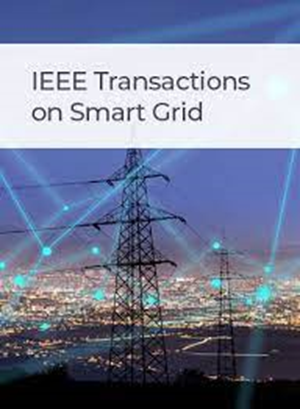基于摄动决策的战略储能建模
IF 8.6
1区 工程技术
Q1 ENGINEERING, ELECTRICAL & ELECTRONIC
引用次数: 0
摘要
本文提出了一种新的以决策为中心的框架,将物理能量存储模型集成到机器学习管道中。在储能模型预测控制的激励下,我们的端到端方法结合储能模型的先验知识,推断出激励储能决策的隐藏奖励。这是通过结合预测层和优化层的双层框架实现的。通过对摄动损失函数的理论分析,我们将摄动思想引入到所设计的决策中心损失函数中,以保证在线性存储模型上的可微性。我们还开发了一个混合损失函数用于有效的模型训练。我们为我们提出的框架提供了两个具有挑战性的应用:储能套利和储能行为预测。在实际价格数据上的数值实验表明,与现有的套利方法相比,我们的套利方法获得了最高的利润。在合成和实际储能数据上的数值实验表明,与现有的基准方法相比,该方法具有最佳的行为预测性能,证明了该方法的有效性。本文章由计算机程序翻译,如有差异,请以英文原文为准。
Perturbed Decision-Focused Learning for Modeling Strategic Energy Storage
This paper presents a novel decision-focused framework integrating the physical energy storage model into machine learning pipelines. Motivated by the model predictive control for energy storage, our end-to-end method incorporates the prior knowledge of the storage model and infers the hidden reward that incentivizes energy storage decisions. This is achieved through a dual-layer framework, combining a prediction layer with an optimization layer. We introduce the perturbation idea into the designed decision-focused loss function to ensure the differentiability over linear storage models, supported by a theoretical analysis of the perturbed loss function. We also develop a hybrid loss function for effective model training. We provide two challenging applications for our proposed framework: energy storage arbitrage, and energy storage behavior prediction. The numerical experiments on real price data demonstrate that our arbitrage approach achieves the highest profit against existing methods. The numerical experiments on synthetic and real-world energy storage data show that our approach achieves the best behavior prediction performance against existing benchmark methods, which shows the effectiveness of our method.
求助全文
通过发布文献求助,成功后即可免费获取论文全文。
去求助
来源期刊

IEEE Transactions on Smart Grid
ENGINEERING, ELECTRICAL & ELECTRONIC-
CiteScore
22.10
自引率
9.40%
发文量
526
审稿时长
6 months
期刊介绍:
The IEEE Transactions on Smart Grid is a multidisciplinary journal that focuses on research and development in the field of smart grid technology. It covers various aspects of the smart grid, including energy networks, prosumers (consumers who also produce energy), electric transportation, distributed energy resources, and communications. The journal also addresses the integration of microgrids and active distribution networks with transmission systems. It publishes original research on smart grid theories and principles, including technologies and systems for demand response, Advance Metering Infrastructure, cyber-physical systems, multi-energy systems, transactive energy, data analytics, and electric vehicle integration. Additionally, the journal considers surveys of existing work on the smart grid that propose new perspectives on the history and future of intelligent and active grids.
 求助内容:
求助内容: 应助结果提醒方式:
应助结果提醒方式:


